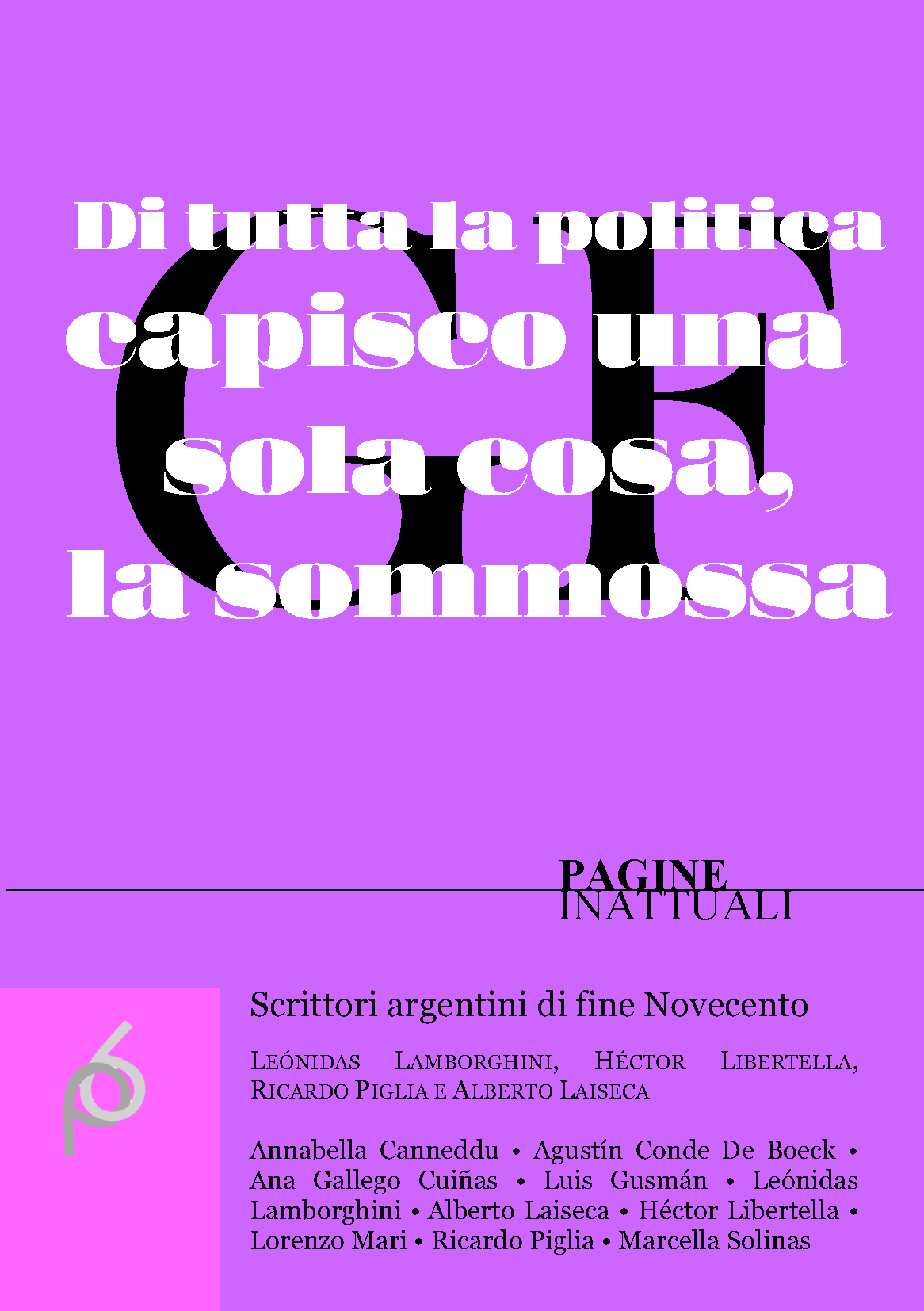La tradizione letteraria argentina
Intervista a Luis Gusmán
Abstract
Luis Gusmán è senza dubbio uno degli autori più rappresentativi della sua generazione, la sua opera del 1973 “El frasquito” (tradotto in Italia come “Il gemello”) ha segnato uno spartiacque, paragonabile a “El fiord” di Osvaldo Lamborghini o “Nanina” di Germán García. Gusmán, d’altronde, è ancora oggi, in Argentina, una figura chiave per comprendere le potenzialità di quell’oggetto elusivo, spettrale e forse ormai anacronistico, che è l’avanguardia. Nel suo saggio “La literatura amotinada” (2018) riprende un concetto (anzi un’intuizione critica) di Libertella, di una letteratura ribelle alle direttive, alle convenzioni e alle compiacenze del mercato letterario: una scrittura “strana”, indigeribile, che non solo trasgredisce ciò che è stabilito, ma che nega anche la stessa legittimità dell’assioma che determinerebbe i limiti di quello stato di cose.
In quest’intervista, abbiamo interpellato Luis Gusmán sia riguardo a quella forza primitiva della rivolta, dell’ammutinamento, sia riguardo ai modi in cui questa attitudine contribuisce a riscrivere una tradizione letteraria e a guidare il personale progetto letterario dell’autore. I nomi ricorrenti di Héctor Libertella, Leónidas Lamborghini, Ricardo Piglia, Alberto Laiseca e Jorge Luis Borges fanno da battistrada di questa conversazione.
Downloads
Pagine Inattuali è pubblicata ad accesso aperto, per assicurare la più ampia diffusione e circolazione possibile al sapere vagliato dalla comunità scientifica.
Tutto il materiale pubblicato è distribuito con licenza "Creative Commons - Attribuzione" (CC-BY 4.0).
Con la licenza CC-BY, gli autori mantengono il copyright sui loro contributi, garantendo tuttavia a chiunque la possibilità di scaricare, riusare, ristampare e distribuire i materiali pubblicati, con la sola condizione che siano correttamente citati l'autore e la sede di prima pubblicazione.

